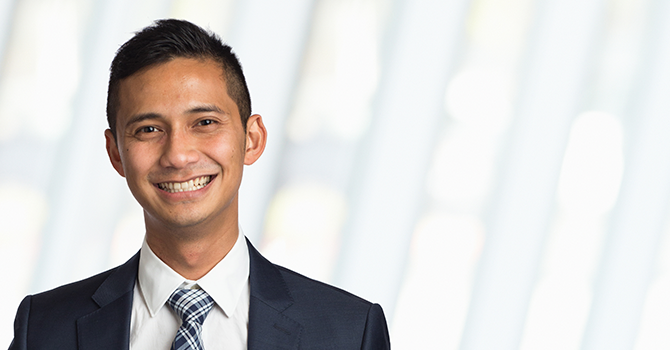Max Aung

Max Aung
PhD Candidate, Environmental Health Sciences
I do research on child and maternal health. We investigate how exposures to environmental toxicants are related to maternal health during pregnancy, and the implications of these relationships on fetal development and birth outcomes. A lot of adverse health outcomes that occur during childhood or later in life, such as obesity and neurodevelopmental impairments, are hypothesized of having developmental origins early in life, particularly during gestation. These conditions and their related comorbidities are costly to manage, especially throughout adulthood. If we can prevent adverse health conditions early in life by reducing environmental exposures, we can really make a big impact.
Last year I received a Health Policy Research Scholars grant from the Robert Wood Johnson Foundation, along with two other School of Public Health students and another University of Michigan student. We're the first cohort. The grant supports PhD students from underrepresented populations and disadvantaged backgrounds who are interested in working to advance health and equity.
I got my bachelor's degree in molecular biology from the University of California Santa Cruz. I did a lot of research in ocean sciences and paleoclimatology. It laid the groundwork for my interest in how the environment impacts human health.
I really had no idea what I was going to do when I finished undergrad. I got a job teaching biology and chemistry to underrepresented students. By my second year of that, I was wanting to do the next thing. I started looking into grad programs and found public health pretty interesting, specifically EHS.
I chose the University of Michigan because, of all the schools I looked at, the professors here were the only ones who reached out to me personally. They had nice, fruitful conversations with me. It was that type of connection in the application process that really made the difference for me.
Marie O'Neill was one of the faculty members who reached out to me right away. She also served as my master's advisor. She really looks out for you. She's not just concerned about the classes you're going to take, but how you're doing.
I get excited about discovering new things and spreading them to the scientific community. This urge to find new information, spread it, disseminate it—that's what motivates me.
I love interacting with prospective students and undergrads. Mentorship is such a critical piece of me. I'm working with a few other PhD students right now to develop an undergrad mentorship program for the new SPH undergrad program launching in the fall.
A PhD is part of you, but it's not you. You need to make time for you. I take time for things that make me happy, like playing the piano and cooking. At the end of the day, it's a PhD. What's a couple extra days?
- Find out more about Environmental Health Sciences.
- Support students like Max.
- Interested in public health? Learn more here.
